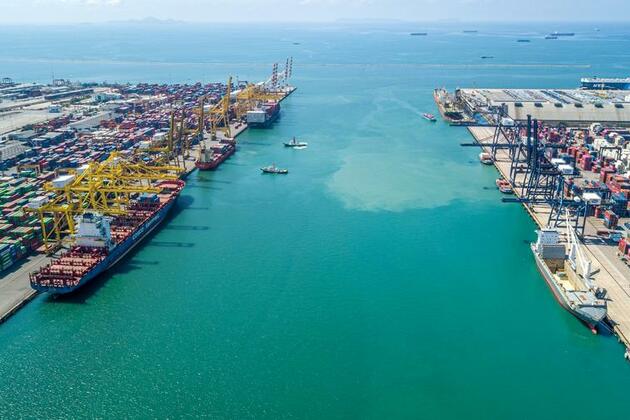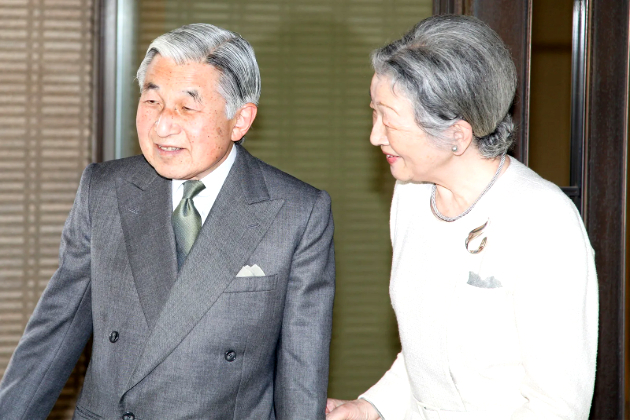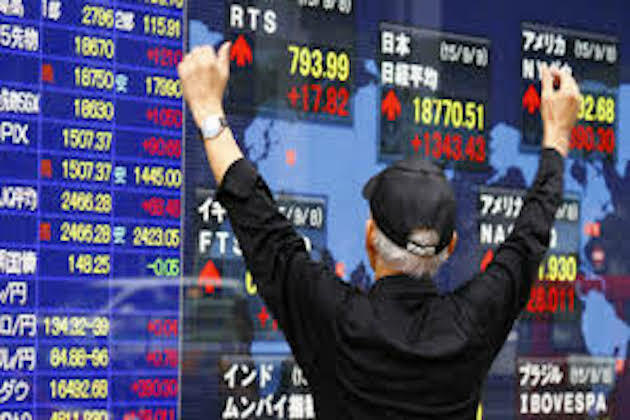U.S. tariffs pose short-term threat, ASEAN resilience will prevail over long term
Xinhua
14 May 2025, 07:15 GMT+10

KUALA LUMPUR, May 14 (Xinhua) -- Wide-ranging unilateral tariffs imposed by the administration of the U.S. President Donald Trump will cause short-term problems for certain sectors of the export-oriented states of the Association of Southeast Asian Nations (ASEAN) grouping, but will lose their bite over time considering the resilience of these countries, according to analysts.
"An immediate impact of the tariffs is higher prices, which in turn lead to lower demand for most goods, resulting in a decline in exports from Asian economies," said Yeah Kim Leng, professor of economics at Sunway University in Malaysia, in an interview with Xinhua.
"More worryingly, heightened policy uncertainty results in risk aversion and a loss of investor and consumer confidence, thereby leading to reduced business and consumer spending and an eventual economic contraction in a globalized world economy," he added.
Meanwhile, Professor Roy Anthony Rogers, deputy executive director at the Asia-Europe Institute of Universiti Malaya, noted that these tariffs will inevitably lead to short-term supply chain and trade disruptions.
"As we live in a global economy, such actions will trigger a domino effect because of the supply chain dependencies and capital flow linkages," he told Xinhua.
KEY SECTORS AT RISK
Yeah noted that ASEAN economies rely on export-dependent industries, which have large capital investments and high gearing, as well as large-scale infrastructure projects with huge foreign borrowings, making them particularly vulnerable to a "tariff war-financial risk" blow-out.
"Semiconductor and high-tech industries, including data centers, are vulnerable to U.S. sanctions on exports of advanced chips. High-end advanced electronics and their supply chains are also at risk from Trump's reshoring pressures, while other products are confronted with potentially high tariffs that could render them non-tradable or uncompetitive, especially if other exporting countries manage to negotiate lower tariff rates," he said.
He also observed that the solar photovoltaic sector in Malaysia is already taking a hit.
ASEAN MOVES TO RESPOND
Meanwhile, Roy Anthony noted that ASEAN states have been mobilizing to respond to the economic threats posed by the tariffs. He suggested that Malaysia, as the chair of ASEAN, should call for a special summit among heads of states, ministers of trade, and ministers of finance to meet and negotiate with the Trump administration as a single bloc to maximize their clout.
"Perhaps it is time to revive the East Asia Economic Caucus (EAEC 2.0) to enhance intra-regional trade and reduce over-dependency on the U.S. market. However, it should include Australia and New Zealand to demonstrate that EAEC 2.0 is not against the West, but rather a move to strengthen our resilience," he said.
Roy Anthony added that Southeast Asian states will move to seek alternative markets, "The industries that have close links with the U.S. may be badly affected, such as semiconductors and technology exports. Therefore, Southeast Asian states should find alternatives," he explained.
U.S. TO BE ULTIMATE LOSER
Ultimately though, the tariffs would undermine the economic position of the U.S. itself, as countries in ASEAN and worldwide race to de-risk, de-dollarize, and build up insulation against the economic disruptions caused by the U.S., moves that will not favor the country in the long term.
"Financial market volatility has ratcheted up, with U.S. stock and bond markets suffering severe losses in anticipation of the negative tariff impact on the U.S. and global economy, higher inflation and a shift away from U.S. dollar assets."
"If there is no de-escalation of the tariff conflicts, the U.S. could be the 'ground zero' for a regional financial crisis, which could also envelop highly indebted countries vulnerable to capital flight," he said.
Yeah also noted that a repeat of the 1997-98 Asian Financial Crisis is unlikely, due to the region's reduced reliance on foreign borrowings, stronger fiscal resilience arising from improved fiscal balances, and low to moderate government debt level.
"Moreover, their trade and investment linkages with China have increased considerably over the decades, which could partially shield the individual countries from U.S. economic or financial shocks," he said.
For his part, Roy Anthony had more severe words, "What I fear is that if the tariff war continues, it will lead to a global economic recession, and if not resolved, may also lead to war, very much like the situation back in the 1930s," he cautioned.
 Share
Share
 Tweet
Tweet
 Share
Share
 Flip
Flip
 Email
Email
Watch latest videos
Subscribe and Follow
Get a daily dose of Japan Herald news through our daily email, its complimentary and keeps you fully up to date with world and business news as well.
News RELEASES
Publish news of your business, community or sports group, personnel appointments, major event and more by submitting a news release to Japan Herald.
More InformationAsia Pacific
SectionMicrosoft bans Chinese AI app Deepseek over data security fears
REDMOND, Washington: Microsoft has prohibited its employees from using Deepseek, a Chinese artificial intelligence app, citing concerns...
Trucker’s body found months after road collapse in Japan
TOKYO, Japan: After nearly three months of complex recovery efforts, the body of a 74-year-old truck driver was found late last week...
Emperor Emeritus Akihito, 91, hospitalized for heart tests
TOKYO, Japan: Emperor Emeritus Akihito, 91, will be hospitalized for heart examinations after doctors detected a potential issue during...
Taiwan MND detects 35 sorties of Chinese aircraft, 8 naval vessels in its territory
Taipei [Taiwan], May 14 (ANI): Taiwan's Ministry of National Defence on Wednesday detected 35 sorties of People's Liberation Army (PLA)...
Survivors of Myanmar earthquake find refuge in China-donated tents
Children play soccer outside their tents donated by China in Mandalay, Myanmar, May 10, 2025. (Xinhua/Myo Kyaw Soe) YANGON, May 14...
U.S. tariffs pose short-term threat, ASEAN resilience will prevail over long term
Aerial photo taken on Jan. 24, 2022 shows a view of the Laem Chabang Port in Chonburi Province, Thailand. (Xinhua/Wang Teng) KUALA...
Business
SectionDow Jones drops 270 points at close as inflation slows
NEW YORK, New York - A better-than-expected CPI reading sent the Standard and Poor's 500 and the Nasdaq Composite higher on Tuesday,...
Air Canada cuts profit forecast amid weaker US travel demand
MONTREAL, Canada: Air Canada has cut its annual core profit forecast and missed first-quarter revenue estimates, citing a drop in U.S.-bound...
Apple’s AI Safari push threatens Google’s iPhone search dominance
CUPERTINO, California: Apple's plan to introduce AI-powered search options on its Safari browser poses a major challenge to Google,...
Foreign workers drive post-pandemic growth in eurozone: ECB
FRANKFURT, Germany: Foreign workers have emerged as a critical force behind the euro zone's economic growth since the pandemic, offsetting...
Trump trade agreement sends Wall Street soaring
NEW YORK, New York - U.S. stocks surged on Monday following news that the Trump administration had agreed to a 90-day reduction of...
De-escalations in India, Pakistan, China and U.S. fuel Asian stocks rally
SYDNEY, NSW, Australia - Stocks in Asia and the pacific have closed significantly higher following ceasefires in India-Pakistan hostilities,...












